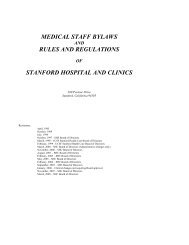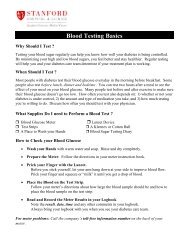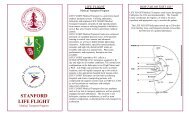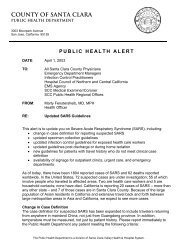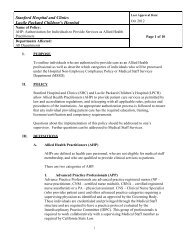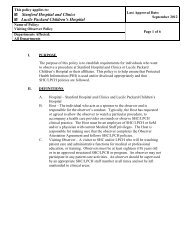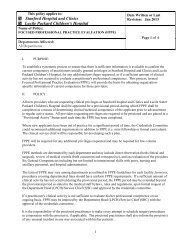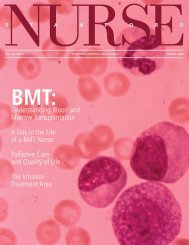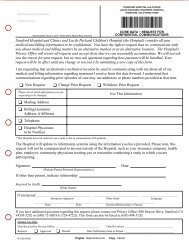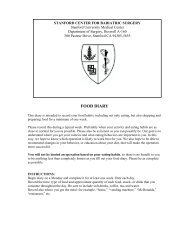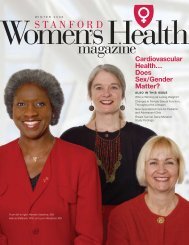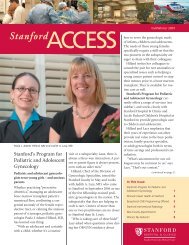Stanford Hospital & Clinics Patient Handbook
Stanford Hospital & Clinics Patient Handbook
Stanford Hospital & Clinics Patient Handbook
Create successful ePaper yourself
Turn your PDF publications into a flip-book with our unique Google optimized e-Paper software.
Welcome to<br />
<strong>Stanford</strong> <strong>Hospital</strong> & <strong>Clinics</strong><br />
At <strong>Stanford</strong> <strong>Hospital</strong> & <strong>Clinics</strong>, more than<br />
1,900 physicians, representing nearly 100<br />
specialties, and over 6,000 nurses, interns,<br />
residents, technicians, and staff are<br />
dedicated to providing you with individual<br />
care and attention.<br />
As part of an academic medical center,<br />
<strong>Stanford</strong> <strong>Hospital</strong> is directly involved in<br />
turning scientific breakthroughs into lifesaving<br />
care for patients—a process known<br />
as translational medicine. We are consistently<br />
ranked among the top institutions in the<br />
U.S. News & World Report annual list of<br />
“America’s Best <strong>Hospital</strong>s” and are<br />
internationally recognized for our innovative<br />
programs to diagnose and treat cardiovascular<br />
disease, cancer, neurological disorders,<br />
and other illnesses.<br />
<strong>Stanford</strong> <strong>Hospital</strong> is a teaching hospital,<br />
which means a team of caregivers will be<br />
caring for you. A senior doctor or attending<br />
physician will supervise your treatment, and<br />
the team may include fellows, residents, and<br />
medical students. Registered nurses,<br />
pharmacists, social workers, and clinical<br />
dieticians may also take part in your hospital<br />
care. Their collaboration and attention<br />
enhances your care while you contribute to<br />
the education of future physicians.<br />
4<br />
What to Expect<br />
• We may wake you during the night to check<br />
your blood pressure, temperature, heart<br />
rate, or other vital statistics.<br />
• You may have blood drawn every morning<br />
very early or several times a day. The<br />
doctors need these results early—and some<br />
times often— to make treatment decisions<br />
and to monitor your status.<br />
• Nurses require an order from a physician<br />
before food, drink, medicine, or treatments<br />
can be given to you.<br />
• You may hear noises from equipment that<br />
are unfamiliar. Do not hesitate to ask a<br />
nurse if you have concerns about any<br />
sounds you may hear.<br />
• The unit you are admitted to may have<br />
special visiting hours.<br />
• Nurses work 8-hour and 12-hour shifts,<br />
so you may have several different nurses<br />
taking care of you during your stay.<br />
• Use your call button if there is anything you<br />
need, or if you need to talk about any fears<br />
or anxiety you feel.<br />
• Your level of pain is of utmost importance<br />
to us. Use the call button to alert the nurse<br />
if you have pain or discomfort.





